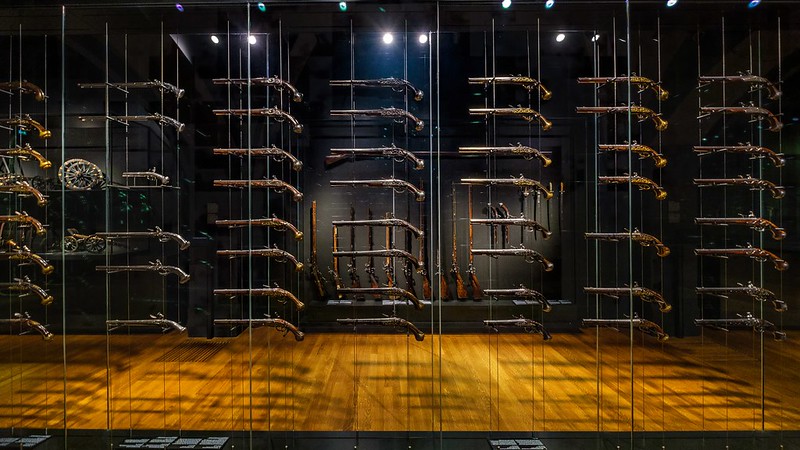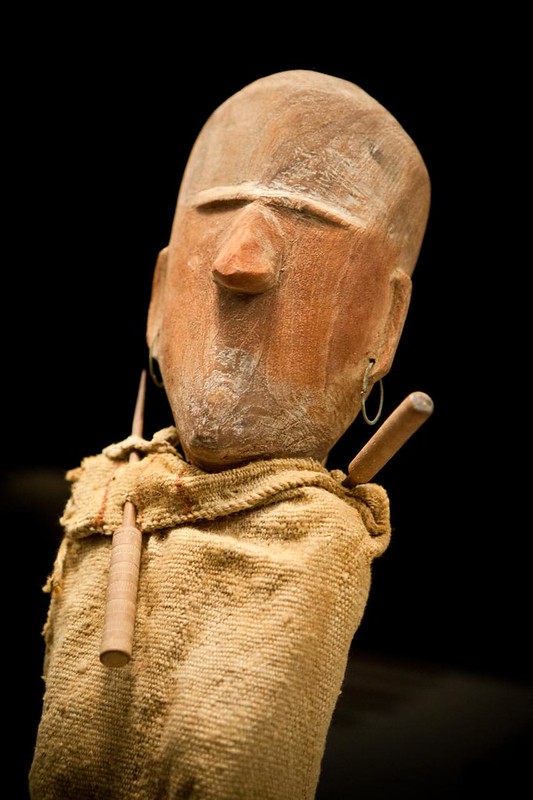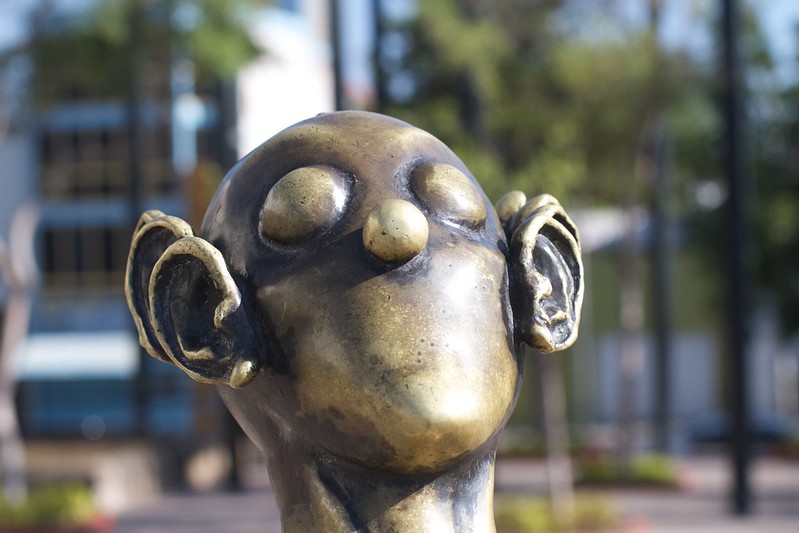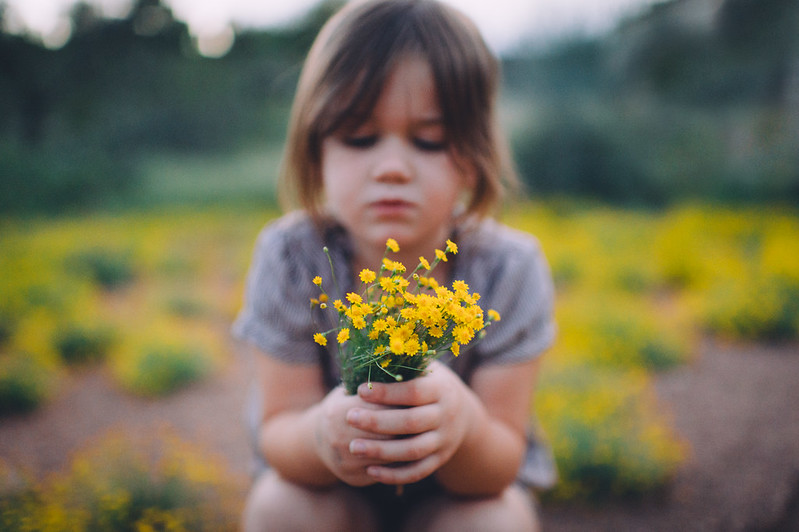
OTHER VOICES: Brendan Constantine
There is a poem written by a much-respected performing poet and the author of at least five collections of original poems, Brendan Constantine, that captures an exploration of the power of language and the creation of meaning quite beautifully.
The poem, “The Opposites Game,” arose out of a writing exercise for Constantine’s elementary school creative writing students at Windward School in Los Angeles, California. It is also a powerful look through the eyes of children about a perennial and perhaps quintessential American question: “What is the opposite of a gun?”
Blank Verse Films, a project to film spoken poetry started by filmmaker Mike Gioia, turned Constantine’s poem into a short film that quickly went viral on YouTube in April, 2018. Here’s the video:
The following year, in 2019, the “The Opposites Game” poem was made into a TED-Ed short film by Anna Samo and Lisa LaBracio. If you click on the button below, you can also see what they did with the poem. It’s a very different take.
POETRY AS COMMUNITY SERVICE AND A BLESSING WAY
Besides being a teacher at local schools and colleges, an award-winning poet and a popular performer, Constantine is an ardent supporter of the poetry communities in Southern Calfornia. Among other things, he has helped to organize poetry workshops for veterans, hospitals, foster care centers, and shelters for the homeless.
Constantine is especially proud of his work with the Alzheimer’s Poetry Project, an initiative developed by Gary Glazner in 2003, that brings interactive poetry reading into the lives of those with Alzheimer’s and their families.

(You can find out more about it by clicking on the Book Club name above.)


Wo!

HEADER PHOTO CREDIT: “Rijksmuseum – The Gun Room 1, Amsterdam” by Gilbert Sopakuwa via Flickr [CC BY-NC-ND 2.0]
……
Please note: If you would like to contribute a poem to this blog, please let me know by leaving a comment below. I’d be happy to hear from you.
I do ask three things of my guest poets:
- a poem of your own making that has great meaning and mana for you,
- the back-story for the poem — what inspired you or how you made it or whatever you want to tell about it, and
- an image that I can use as the featured photo in the header. (The last is optional. I do ask that the image you share is one you own — either an image of yourself or something that relates to the poem. If you choose not to send an image, then I’ll go find something that works.)
If you click on this thing –> “Guest Poet Portal” you can submit a poem right now.
……
Thanks for your visit. I’d appreciate it if you would drop a note or comment below and tell me your thoughts.
12 thoughts on “OTHER VOICES: Brendan Constantine”
I used to write a lot of poems and had a website with about 25 poems. Its not up anymore cuz that was like 10 years ago but I definitely understand how poems can impact the writer and the people who are reading it.
I knew there were programs out there where poets can help the community but didn’t know about the ones you explained in this article. Thanks for the info
Rafael, I’m pleased you enjoyed the post. It has been a bit of an awakening for me to realize that language — poetry, story, and words — do have such an impact on all aspects of life and living. It’s my coolest discovery!
What follows from that one is the thought that poets and storytellers can be change-agents who make dents in the world their own selves! Yay! Up the Bards!
Please do come again.
I love the stunning images in your post. They really do speak for themselves.
I never knew about the Aphasia club.
I have come across a person having a stroke and suffering from partial face paralysis. He barely could utter words clearly. With homeopathic medication, he slowly recovered. The stroke per this person was the result of a severe mental shock from someone closer to him in the family.
It is nice to know it can be the beginning of dementia. Would it be better to read, write and do some creative thinking every day to delay the disease at least?
Anusuya, thanks for sharing your story. You might want to check out the NIH (National Institute on Deafness and Other Communication Disorders) website page about aphasia.
Here’s the link: https://www.nidcd.nih.gov/heal…
It gives a lot of information about the disorder and how people can be helped to grow workarounds in the neural circuitry of their brains that compensate for the bits that don’t work so well any more. A lot of that help involves things like talking and writing and regaining their ability to communicate.
I would think that one of the hardest things of all would be losing the ability to use words effectively.
I am pleased you like the images in my posts. I tend to use the ones on Flickr that have Creative Commons licensing, mostly because there is such a wide variety of great photographers (as well as ordinary folks) who post their work on the pages. I am always amazed by them.
Please do come again.
I have never heard of the “Alzheimer’s Poetry Project” I am glad there is Poetry being used there as well.
I have learned so much over the past few weeks about the many different niches and I think it’s incredible how widely varied the information is on your site.
This is a compliment. It’s almost like I can come here and find information about many different types of things, or charities, or kindess acts.
Thank you for sharing and finding valuable ways to include poetry into our lives, again.
Welcome back, Kelly Ann. I’m so glad you find the posts helpful.
Please do come again.
hmmm reading this has made me wonder if maybe I have aphasia and has made me want to look into it more. I sometimes blend words, or I speak like Yoda where I say things backward. I use to chalk it up as my brain just is to quit for the words coming out of my mouth, but now I’m curious. It happens when I write as well but I just thought I was dyslexic. I’m curious if you know any more about it.
Victoria, thanks for your visit and for your question. You may want to check out the National Aphasia Association’s website for more information about the condition. Here’s the link: https://www.aphasia.org/
Please do come again.
The use of language can be a powerful tool for exploring complex themes, as demonstrated by the work of poet Brendan Constantine. Through his community service, Constantine has highlighted the healing potential of poetry, particularly for those dealing with conditions such as Alzheimer’s and aphasia. His efforts have demonstrated the importance of giving back to communities in need and using poetry as a means of service.
As someone who has witnessed firsthand the transformative power of literature, I appreciate the work of Constantine and others like him who are dedicated to using language as a means of healing and connection.
Aly, thanks for the visit and for sharing your thoughts. I agree that those who can use words for healing and connection are treasures.
Please do come again.
Hey there,
I couldn’t help but express how much I enjoyed coming across this post and its accompanying video content. The captivating nature of both not only grabbed my attention but also provided valuable insights that I found both engaging and informative. Your efforts in creating such compelling content are much appreciated.
Cheers,
Dean
Thanks for your kind words, Dean. I do appreciate them.
Please do come again.